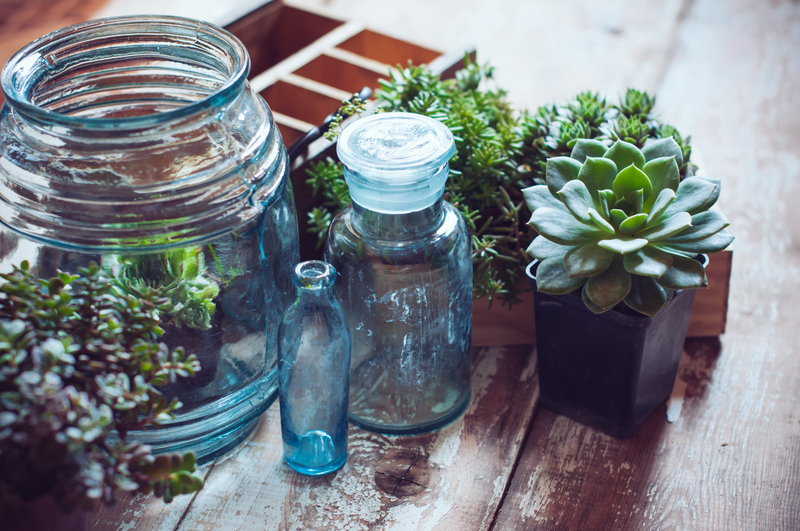Finding Local Recycling Options for Pots and Pans: The Ultimate Guide
Have you ever opened your kitchen cupboard and wondered what to do with all those old, scratched, or mismatched pots and pans? Whether you're upgrading your cookware or decluttering your kitchen, it's important to dispose of unwanted pots and pans in an environmentally responsible way. This comprehensive article will walk you through everything you need to know about finding local recycling solutions for pots and pans. We'll also discuss alternative ways to give your cookware a new life. Read on to discover expert tips, step-by-step guidance, and answers to your most common questions about recycling cookware locally.

Why Should You Recycle Pots and Pans Locally?
Before exploring your local recycling options for pots and pans, let's consider why recycling matters in the first place. Discarded cookware can take up significant landfill space and may contain materials that harm the environment. Many pots and pans are made from valuable metals like aluminum, stainless steel, or copper--all of which can be reused and transformed when properly recycled.
- Reduces waste: Keeping cookware out of landfills helps protect the environment.
- Conserves resources: Recycling metals uses less energy than extracting new materials.
- Promotes sustainability: Choosing local recycling supports your community's green initiatives.
Finding suitable recycling options for cookware in your area can make an impressive difference for both your home and the planet.
What Types of Pots and Pans Can You Recycle?
Not all cookware is created equal when it comes to recycling. Here's a breakdown of the most common types you'll find in kitchens, and what to know before you recycle them:
- Stainless Steel: Generally accepted at most metal recycling facilities.
- Cast Iron: Highly recyclable; these are always welcome at scrap metal yards.
- Aluminum: Can be recycled almost everywhere, but non-stick coatings may pose special considerations.
- Copper: Very valuable and recyclable, but may require removing handles or non-metal parts.
- Non-stick Pans (Teflon-coated): Sometimes accepted if the coating is intact, but check with your local center.
- Ceramic: Often not recyclable, but there may be creative reuse options.
Pro tip: If your pans have wooden, plastic, or rubber handles, you might need to remove those parts to qualify for recycling at certain facilities.
How to Prepare Pots and Pans for Recycling
To ensure your cookware is recycled responsibly, a little preparation goes a long way. Here's how:
- Clean off food residue--a quick wash is usually enough.
- Remove non-metal parts if possible, such as lids, handles, or knobs made of plastic, rubber, or wood. (These often cannot be recycled with metal.)
- Check for labels that identify the type of metal or coating used on the cookware.
Not sure about the material type? A simple rule is: if a magnet sticks, it's likely steel or iron. If not, it may be aluminum or copper.
Finding Local Metal Recycling Facilities
1. Local Scrap Yards and Metal Recyclers
Sizable pots and pans made of metal can often go straight to your local scrap recycler. Here's how to find one:
- Search online using terms like "metal recycling near me" or "scrap yard for pots and pans".
- Check community directories, city waste management websites, or apps like Earth911 and RecycleNation.
- Contact your local municipality for a list of approved recycling facilities that accept cookware.
2. City or County Household Waste Facilities
Many municipalities have designated drop-off points for metals, household goods, and sometimes even cookware. These facilities often accept pots and pans for recycling or responsible disposal. Look up your city's solid waste department or public works webpage for more information.
3. Retailer Recycling Programs
Some large chain retailers offer recycling take-back programs for cookware. For example, national kitchenware stores occasionally host trade-in events where you can bring old pots and pans for recycling in exchange for a discount on your next purchase. Always check the latest store policy and any restrictions regarding cookware types and coatings.
4. Local Recycling Events
Watch for special recycling drives or "clean out" events in your area. These are often held in spring and fall and may include drop-offs for hard-to-recycle items like rusted, scratched, or non-stick pots and pans.
Understanding Recycling Rules for Pots and Pans
Accepted Materials
Most metal recycling centers accept pure metals like stainless steel, cast iron, copper, and aluminum. Cookware with coatings or composite materials (such as some non-stick pans) may require additional sorting or may not be accepted. When in doubt, call ahead and provide a description of your items.
Limitations and Exclusions
- Glass lids: Usually not accepted with metal recycling. Handle separately.
- Plastic, rubber, or wood parts: Should be removed where possible to avoid contamination of the metal recycling stream.
- Damaged or flaking non-stick coatings: May be disqualified from recycling, as the coatings can contaminate processing equipment.
- Unidentified materials: If you're unsure what your pans are made from, ask your recycling center before dropping them off.
Alternative Eco-Friendly Disposal Solutions
If your cookware is not suitable for traditional recycling, consider these creative alternatives instead of throwing them away:
- Donation: If the items are still in usable condition, consider donating to shelters, community kitchens, or thrift shops.
- Upcycle or Repurpose: Turn old pans into quirky planters, bird feeders, or wall decor.
- Give Away: Offer functioning cookware on local Buy Nothing groups or neighborhood swap events.
- Repair: Some specialty shops can resurface or fix pans--prolonging their life and keeping them out of landfills.
Creative Upcycling Ideas for Pots and Pans
Feeling crafty? Here are some inventive ways to breathe new life into your unusable cookware:
- Use an old saucepan as a rustic flowerpot.
- Create a simple clock by attaching a mechanism to a stylish skillet.
- Arrange lids into artistic wall displays for a kitchen-themed decor accent.
Share your upcycling projects with friends or on social media to inspire others to rethink their own kitchen castoffs!
Frequently Asked Questions About Finding Local Recycling Options for Pots and Pans
-
Can I put pots and pans in my curbside recycling bin?
Curbside programs typically do NOT accept cookware--even if it's made of metal. The sorting equipment is not designed to handle bulky household goods, and the non-metal parts can contaminate the recycling stream. Always use a dedicated metal recycling or scrap facility instead.
-
What about pots and pans with non-stick coatings?
Non-stick coatings like Teflon complicate the recycling process. Some facilities may accept them if the coating is in good condition. If the coating is flaking or damaged, these pans often cannot be recycled as scrap metal. Check with your local recycling center before dropping them off.
-
Can glass cookware be recycled?
Typical glass cookware (like Pyrex) is not recyclable by conventional glass recycling programs due to its special heat-resistant composition. Look for specialty recycling events or upcycling opportunities instead.
-
Does recycling metal cookware pay?
Scrap metal yards sometimes offer cash for valuable metals like copper or large amounts of stainless steel, but don't expect big bucks from a small batch of pots and pans. The main reward is keeping useful materials in circulation and out of landfills!
Quick Checklist: How to Recycle Pots and Pans Locally
- Identify the material type (aluminum, steel, copper, etc.).
- Remove all non-metal elements that could interfere with recycling.
- Search for local metal recycling centers or scrap yards that accept household cookware.
- Ask about special rules for non-stick or coated pans.
- Drop off your cleaned and prepared cookware for proper recycling.

Resources for Locating Nearby Pots and Pans Recycling Options
- Earth911's Recycling Locator Tool
- RecycleNation for US-based recycling ideas and locations
- EPA's official recycling guidelines
- Check your city or county's public works or sanitation department website
- Ask at kitchenware retailers about periodic take-back events
Conclusion: Responsible Ways to Dispose of Pots and Pans in Your Community
Recycling pots and pans locally isn't just about decluttering your cupboards--it's an important step in fostering sustainability, resource conservation, and community wellness. By making informed choices, preparing your cookware properly, and finding reputable local recycling facilities, you help ensure that valuable materials stay out of landfills and in productive use. Whether you opt for traditional recycling, donation, or creative repurposing, you're making a positive impact.
Have more questions about finding recycling solutions for cookware in your area? Contact your local recycling agency or explore one of the resource links above. Your effort makes a difference--one pot and pan at a time!
